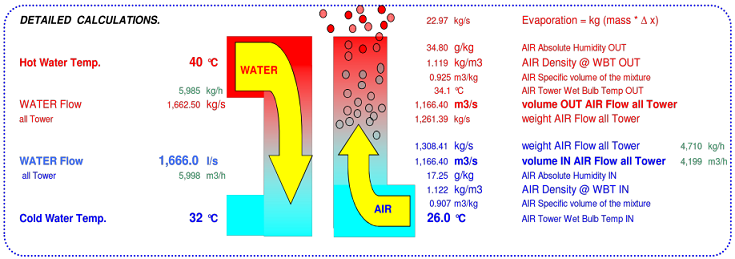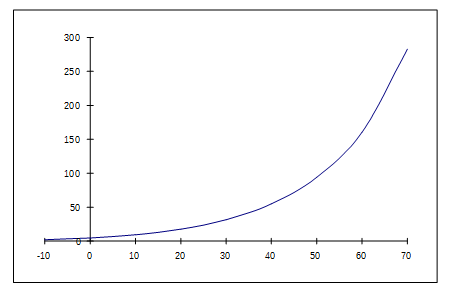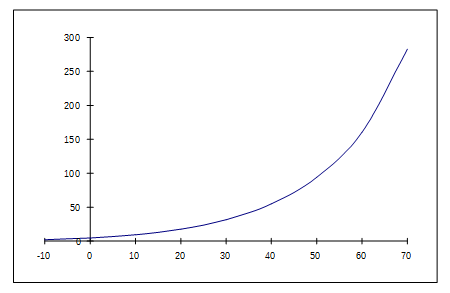The research for the design and implementation of TURBOsplash PAC ®™ filler panels, carried out by the technical staff of the Italian company NERI S.r.l., lasted several years. In this period the staff performed several laboratory tests and installations in existing towers, Read More
Water is a precious commodity. Spoiling water is not only a waste of money, it also destroys a natural resource that is otherwise beneficial to all of us. Without saving water, irrigation and drinking water sources will be compromised. Machinery, labor, efficiency, Read More
Water and air, these two elements have been used by mankind for thousands of years to improve their lives. Moreover, thanks to intelligent research and applications, these two natural elements have learned to live together influencing the evolution of humanity itself. In Read More
Water by weight contained in 1 m3 of saturated water( C.A. Cavalli Termodinamica industriale – Hoepli) Tempearture in oC Contained water (grams of water vapor) g -10 2.15 0 4.89 10 9.54 20 17.7 30 31.7 40 55.1 50 94.20 60 160.36 70 282.97 Read More
Water by weight contained in 1 m3 of saturated water ( C.A. Cavalli Termodinamica industriale – Hoepli) Tempearture in oC Contained water (grams of water vapor) g -10 2.15 0 4.89 10 9.54 20 17.7 30 31.7 40 55.1 50 94.20 60 160.36 70 Read More
Range of process plants that can be cooled with evaporative systems. Importance of volumes of energy to be disposed of. Cost-effectiveness of the cooling system. For high volumes of heat to be disposed, evaporative systems are much used for cooling water, relatively Read More
The ability of the air to cool water has many practical benefits. As mentioned in the previous post, one way to transfer heat from one element to another is to put them in contact with each other (conduction). This is one of Read More
Up to what temperature can air cool water The refrigerator is the first thing that comes to mind when it comes to cooling. Refrigerating machines require a fair amount of energy to activate the process and transfer the heat from the element Read More
Water is a precious commodity. Spoiling water is not only a waste of money, it also destroys a natural resource that is otherwise beneficial to all of us. Without saving water, irrigation and drinking water sources will be compromised. Machinery, labor, efficiency, Read More
In the long cold winter evenings in Friuli, during my military service, I had lots of free time and with the help of my friend Pasquale I was eager to put together a diagram containing ten years of data temperatures from dozens of Read More




